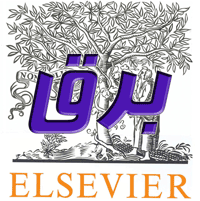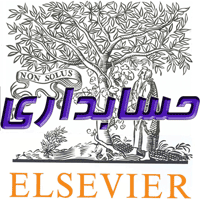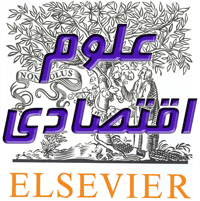دانلود مقاله isi بررسی دسترسی کاربران به اشتراک گذاری و مصرف مشارکتی آنلاین
دانلود رایگان مقاله الزویر در مورد بررسی دسترسی کاربران به اشتراک گذاری و مصرف مشارکتی آنلاین (کلیک کنید)
توضیحات :
وبسایت مکاله اقدام به ارائه پروژه ی ساینس دایرکت با فرمت pdf، از انتشارات الزویر برای رشته علوم اقتصادی، و با عنوان بررسی دسترسی کاربران به اشتراک گذاری و مصرف مشارکتی آنلاین، نموده است.
مشخصات این مقاله :
عنوان مقاله :
You are what you can access: Sharing and collaborative consumption online
ترجمه فارسی عنوان :
شما آنچه هستید که با آن دسترسی دارید: بررسی چگونگی دسترسی کاربران به اشتراک گذاری و مصرف مشارکتی آنلاین
سال انتشار : 2013
متعلق به مجله یا ژورنال : نشریه پژوهش های کسب و کار – Journal of Business Research
فرمت: PDF
تعداد صفحات: 6
شماره پروژه: 5096
کلمات کلیدی :
Collaborative consumption,Ownership,Access,Sharing,Sharing economy,Community
مصرف مشارکتی، مالکیت، دسترسی، اشتراک، اشتراک گذاری اقتصاد، انجمن
چکیده :
Abstract
Sharing is a phenomenon as old as humankind,while collaborative consumption and the “sharing economy” are phenomena born of the Internet age. This paper compares sharing and collaborative consumption and finds that both are growing in popularity today. Examples are given and an assessment ismade of the reasons for the current growth in these practices and their implications for businesses still using traditional models of sales and ownership. The old wisdom that we are what we own, may need modifying to consider forms of possession and uses that do not involve ownership.
مقدمه این مقاله :
Introduction
Belk (1988) argues and theorizes that you are what you own. However with the Internet we have many ways to express our identity without ownership (Belk, 2013, in press). Consumer research bears witness to a flurry of recent attention to a group of related business and consumption practices describable as sharing (Belk, 2010), “collaborative consumption” (Botsman & Rogers, 2010), “the mesh” (Gansky, 2010), “commercial sharing systems” (Lamberton & Rose, 2012), “co-production” (Humphreys & Grayson, 2008), “co-creation” (Lanier & Schau, 2007; Prahalad & Ramaswamy, 2004), “prosumption” (Ritzer & Jurgenson, 2010; Toffler, 1980), “product-service systems” (Mont,2002), “access-based consumption,” (Bardhi & Eckhardt, 2012), “consumer participation” (Fitzsimmons, 1985), and “online volunteering” (Postigo, 2003). This attention corresponds to the rise of numerous for-profit and non-profit businesses that are flourishing thanks to the rise of the “sharing economy” (e.g., Lessig, 2008; A. Sacks, 2011). Examples of businesses that fall within one or more of these rubrics are Airbnb, Zipcar, Wikipedia, YouTube, Flickr, Facebook, Freecycle, and Twitter. In a broad sense, the Internet itself is a giant pool of shared content that can be accessed by anyone with an Internet connection, a browser, and a government that allows access to most or all web content.There are two commonalities in these sharing and collaborative consumption practices: 1) their use of temporary access non-ownership models of utilizing consumer goods and services and 2) their reliance on the Internet, and especially Web 2.0, to bring this about. Web 2.0 “…refers collectively to websites that allow users to contribute content and connectwith each other” (Carroll & Romano, 2011, p. 190). This is in contrast toWeb 1.0which primarily involved one-directional provision of information to consumerswho did not interact or respond to theweb site or to one another. In this paper I seek to assess the similarities and differences between sharing and collaborative consumption, examine the extent to which various parts of the “sharing economy” truly involve sharing, and explain why these developments have stirred so much attention at this particular time. I further consider the degree to which they challenge traditional business models and the dangers and opportunities they may provide for business. For consumers, I consider how emerging ways of accessing possessions without ownership may influence our sense of self.
توجه :
– این مقاله به صورت کامل و با فرمت پی دی اف آماده خرید اینترنتی و دانلود آنی میباشد.
توضیحات بیشتر در مورد پروژه :
در این مقاله خواهید خواند که اشتراک گذاری یک پدیده قدیمی می باشد در حالی که مصرف مشارکتی و اشتراک گذاری اقتصاد پدیده نو ظهور است که از عصر اینترنت متولد شده است. پدیده قدیمی ممکن است نیاز به اصلاح داشته باشد و همچنین مالکیت را شامل نمی شود
دانلود رایگان مقاله الزویر در مورد بررسی دسترسی کاربران به اشتراک گذاری و مصرف مشارکتی آنلاین (کلیک کنید)



